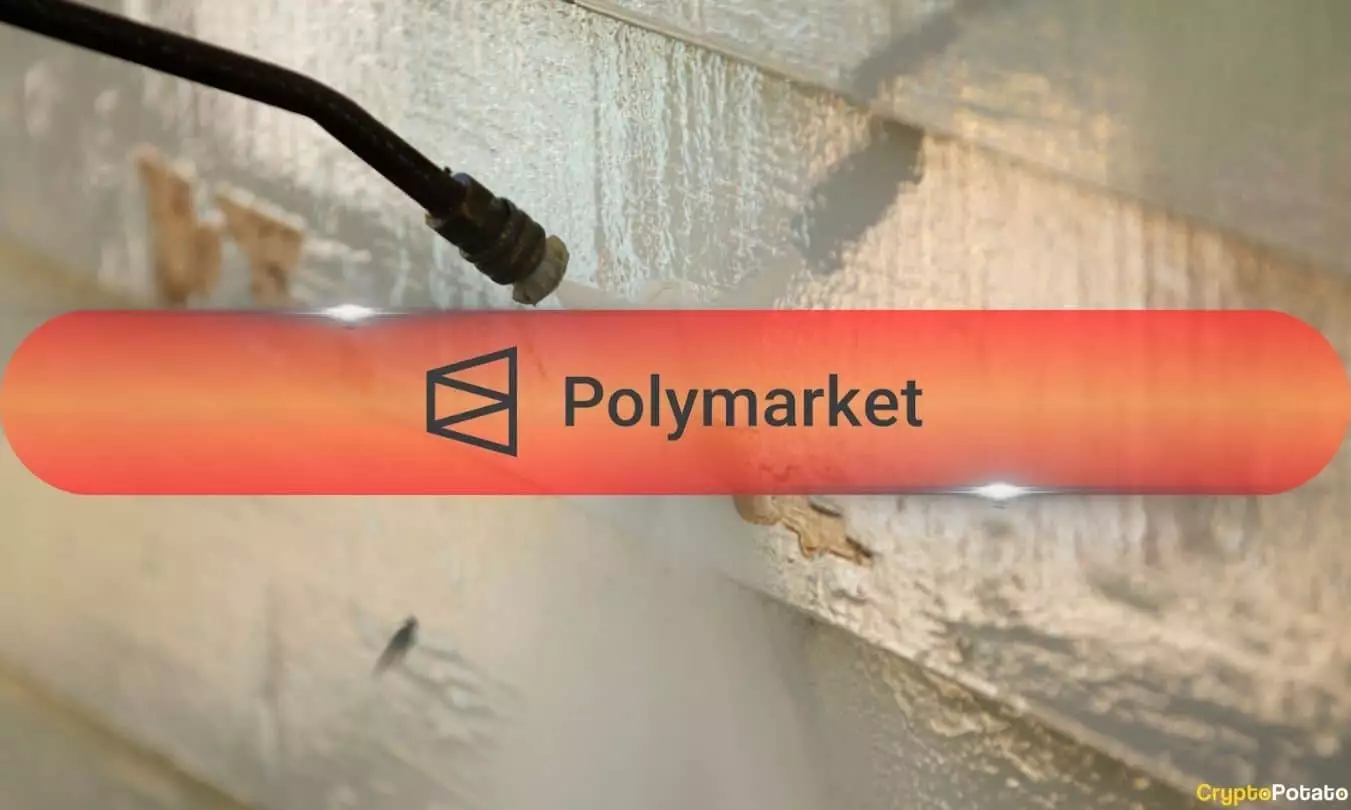The credibility of Polymarket, a leading blockchain-based betting platform, has come under intense scrutiny following a recent investigative report by two prominent crypto research firms. Despite its frequent mention in mainstream media as a reliable indicator for election outcomes, analysts have raised significant concerns about the authenticity of its trading activities. Reports suggest that a troubling amount of wash trading—an unethical practice that artificially inflates trading volume—might be occurring on the platform. Such revelations could undermine the reliability of Polymarket’s betting odds as genuine predictors of political events.
Wash trading essentially involves repeated buying and selling of the same asset within a short timeframe, creating a misleading impression of heightened activity. According to Chaos Labs and Inca Digital, the extent of wash trading on Polymarket is staggering, with estimates indicating it constitutes approximately one-third of the platform’s reported trading volume. This discrepancy raises a red flag: the manipulated figure of $2.7 billion starkly contrasts with what the firms suggest is a more realistic figure of $1.75 billion. Such a significant difference casts doubt on Polymarket’s operational transparency and the overall health of its marketplace.
Moreover, the methodology employed in analyzing trading activity deserves scrutiny. Chaos Labs leveraged on-chain data to isolate what they deemed high-volume traders, filtering out those presumed engaged in conventional practices such as market making. However, the complexity of filtering legitimate activities from manipulative behaviors raises questions of accuracy. Can these firms definitively classify traders as engaging in wash trading, or are there inherent uncertainties in their analysis that could compromise the results?
In light of these allegations, a spokesperson for Polymarket emphasized their commitment to transparency, allowing the marketplace to self-regulate based on user participation. However, this assertion may not address the fundamental concerns regarding its trading practices and the implications for bettors relying on the platform for informed decisions. As Polymarket seeks new funding—reportedly aiming for $50 million—and prepares for potential token launches, stakeholders need to question whether regulatory oversight could bolster the platform’s integrity in a market already rife with concerns.
Since its inception in 2020, Polymarket has risen to prominence, particularly following its offshore relocation due to U.S. regulatory scrutiny. The platform has been buoyed by significant election-related trading volume, reaching $533 million in September alone. Yet, as election polls vary widely—Trump leading Harris in some and vice versa in others—how confidently can users navigate this volatile landscape when the underlying data may not be as reliable as once thought?
The revelations surrounding Polymarket beckon a critical conversation about accountability within blockchain and betting platforms. Wash trading not only disrupts the fairness of markets but also tarnishes the reputation of innovative financial technologies. For a platform that purports to revolutionize predictive betting, establishing trust among its user base is paramount. Moving forward, both analysts and bettors alike must remain vigilant, demanding verified transparency and robust policies that ensure ethical trading practices to sustain Polymarket’s role as a viable indicator of political outcomes.


Leave a Reply